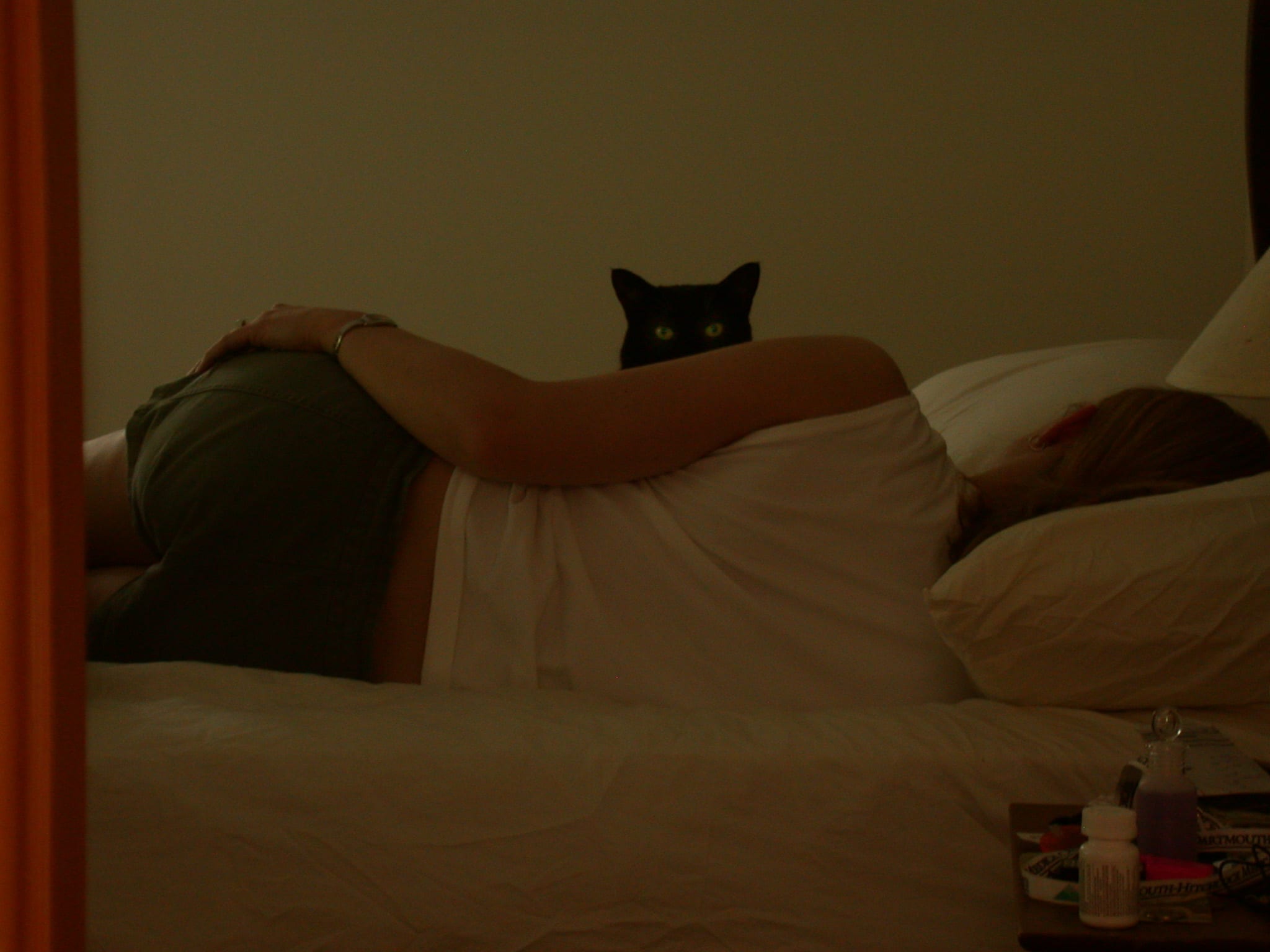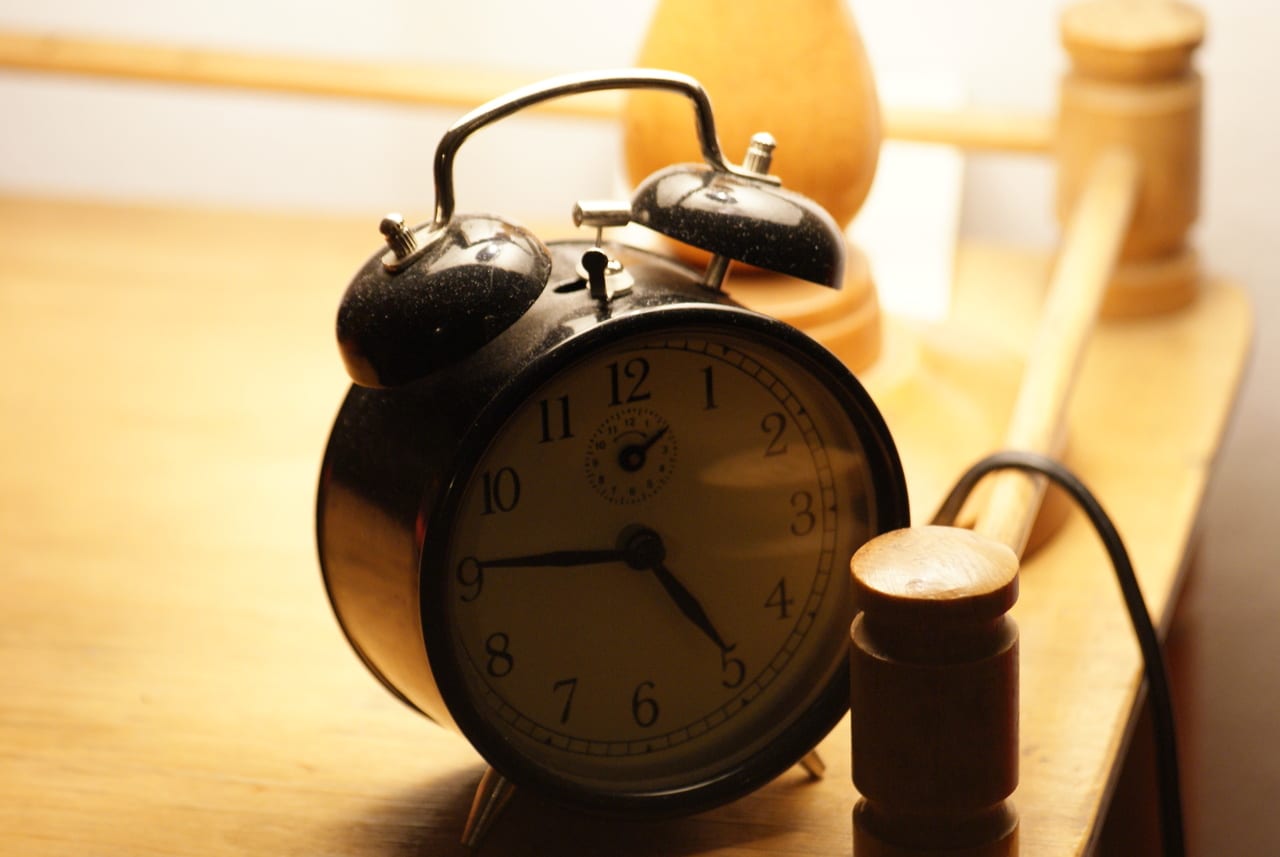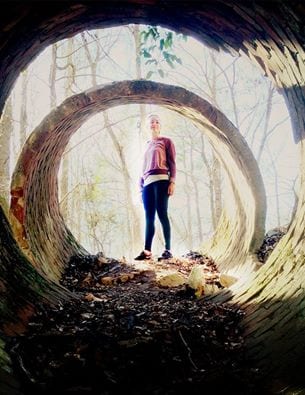It's Monday morning. About 15 minutes into my 9AM evolution class, I'm starting to nod off. C'mon, wake up, I tell myself. I look down at my notes and they're totally incoherent. I reach for my tea. Ah yes, caffeine. What time is it? Only 9:26? How can that be?!
For me, the worst part about struggling to get my ass out of bed at 7:30AM on Monday morning (or really any morning) is feeling like I have to fight with myself about it. I spend about an hour snoozing in 5 minute increments and snuggling with my cat before I can convince myself to crawl out from under the covers and put a kettle on. I could force myself to get in bed by 10PM or stay up till 2AM, it makes no difference.

The internal dialogue continues after my class lets out at 10AM. Ok, that was a rough one. Maybe I can find a couch and nap a little before I gotta go to stats at 11AM? Stumbling sleepily up the stairs to my lab, I pass two quiet, dark conference rooms with locking doors and comfy cou– where are the couches?
The couches are gone. They're onto me. I admit defeat.
I think to myself, Michelle, you're being ridiculous. Most of the American workforce starts their workday at 9AM or earlier, and I still can't get it together by 10:15? I work out, I sleep 7 hours a day, I eat healthy (most of the time). I even sleep with my blinds open so the sunlight comes in and– that's it! The sun! It's still dark when my alarm goes off and, as winter approaches, sunrise will come later and later. Now all you have to do is adjust the rotation of the earth so as to make sunrise a little more convenient. Well that's brilliant, Michelle, really.
If I would stop being so snarky with myself, I would realize I'm onto something. Our 24 hour sleep/wake cycles are determined by our circadian rhythm, which is largely influenced by light. Circadian rhythms govern the daily routines of plants, animals, and even bacteria. In mammals, like humans, the circadian rhythm is controlled by the body's “master clock,†a group of nerve cells in the brain called the suprachiasmatic nucleus (try saying that five times fast). The suprachiasmatic nucleus, or the SCN, is located just above the optic nerve, where it receives information about incoming light and responds by monitoring the production of the hormone melatonin. When it's dark, like at night, your SCN produces more melatonin to make you drowsy. In this way, the SCN acts as the biological hardware that sets our 24 hour circadian rhythm to detected light changes in our environment.

So waking up before the sun is not only really hard to do, it's unnatural. This is probably why about 50-70 million Americans also get the feeling they shouldn't be out of bed yet. Ok great, you've established that this is a widespread problem with an underlying biological component. Congrats. How is that going to help you stay awake in class at 9AM? As much as I hate (and love) to admit it, my sassy inner-self has a point.
Hang on a second. What about the 3 cups of tea you had before class? Shouldn't that have given you a jolt? Caffeine is one solution to fighting your circadian rhythm, but comes with a price. Caffeine can suppress the release of melatonin, helping you stay alert. But at the end of the day, caffeine is a drug, and caffeine withdrawal (which can begin as soon as an hour after consumption) can decrease memory recall and reaction time, and increase exhaustion. This is probably why I was falling asleep in class an hour and a half after my first dose.
Ok, let's recap real quick: we can't control the movement of the earth so as to influence the sunrise (major bummer), caffeine is a quick fix that really only results in crashing and burning, I still need to get to school and get work done, I'm starting to get real cranky, and THE COUCHES ARE GONE!!
I can't change my circadian rhythm, and I can't effectively cheat it with caffeine. Maybe I should just listen to it. Oohhhh…

Allowing our circadian rhythms to guide our work schedules boils down to one thing: sleeping in. Several studies suggest we as a society could really benefit from starting work and school at 10 or 11AM. One study in particular found a direct correlation between later start times for work and school and healthy sleep. Based on the results of these numerous studies, sleep scientists urge American schools and corporations to seriously consider delaying start times to increase productivity and success. The benefits of the sleeping gains were especially profound in adolescents and adults in their twenties (that's me!), who are under a lot of hormonal, societal, and financial stress (also me!). These age-specific biases in sleep gains are also related to our biological clocks and circadian rhythms. As we age our bodies produce lower concentrations of melatonin that wear off earlier in the morning. This is why grandpa is up by 5:30AM no matter what day it is (SO annoying on family vacations).
So getting the sleep I need depends on convincing “The Man†that we need to come to work at 11 instead of 9? Guess I should start working on adjusting the earth's rotation. But first, a nap.
Featured Image: Sleep by masha krasnova-shabaeva via Flikr
 |
Michelle Ziadie is a Ph.D. student in the Department of Genetics at UGA working on the evolution of maternal effects and undergraduate evolution education. A native of Miami, Florida with caribbean roots, Michelle never turns down an opportunity to engage with spicy food or spicy music. When she's not dancing the night away with friends or getting lost in the Georgia wilderness, Michelle can be found sipping a café Cubano and watching Teenage Mutant Ninja Turtles with her kitten, Thomas. More from Michelle Ziadie. |
About the Author
- athenssciencecafehttps://athensscienceobserver.com/author/athenssciencecafe/April 17, 2020
- athenssciencecafehttps://athensscienceobserver.com/author/athenssciencecafe/April 12, 2020
- athenssciencecafehttps://athensscienceobserver.com/author/athenssciencecafe/April 3, 2020
- athenssciencecafehttps://athensscienceobserver.com/author/athenssciencecafe/March 30, 2020







